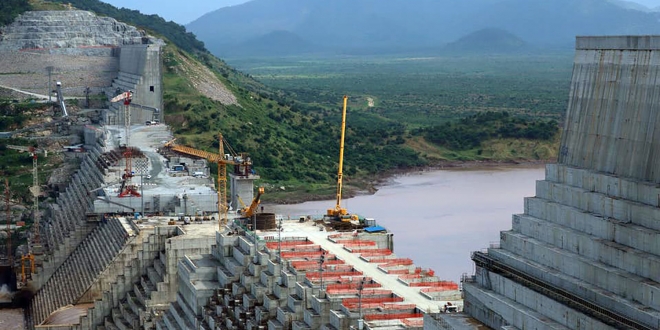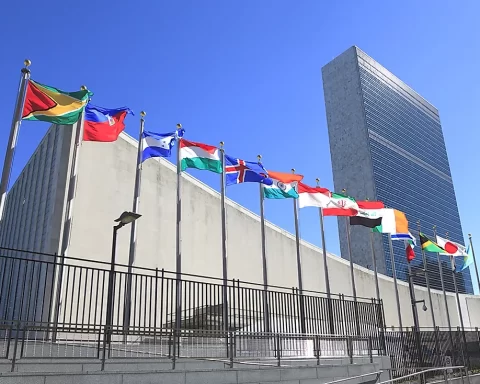The Grand Ethiopian Renaissance Damn (GERD) is a 6,450-megawatt hydropower project that is nearing completion on the Blue Nile in Ethiopia. It’s located about 30 kilometers upstream from the border of Sudan and will be the largest hydropower project in Africa.
Egyptian Minister of Irrigation and Water Resources Mohamed Abdel-Ati is saying that Ethiopia “tells lies” about Egypt’s water and portion of the Nile River’s water.
The minister explained that Egypt has no green water, which is what the accumulated water in soil and vegetation after rainfall is called. Ethiopia gets more than 93.4 million acres from rainwater and has more blue water – the water in surface and groundwater reservoirs.
Egypt – 90 percent of its fresh water comes from the Nile – and Sudan have voiced concerns over the GERD’s potential effect on their water security since there is no legally binding agreement regulating its filling and operation. Egypt and Sudan are the two downstream countries from the dam.
Negotiations between Egypt, Sudan, and Ethiopia have been going on for a decade now and no agreement has been reached over the dam. In September 2021, the United Nations Security Council released a statement urging the three countries to begin negotiations once again.
Egypt is considered one of the most water-scarce countries in the world, so it stands to reason why they are worried about the effects of the GERD. The amount of water Egypt receives from the Nile each year is far below what the country needs – placing Egypt far below the international threshold for water scarcity.
The GERD is disrupting the Nile River system. Abdel-Ati pointed out that Sudan experienced severe drought followed by massive flooding after Ethiopia’s unilateral filling of the dam’s reservoir in 2020. The unilateral filling was said to be due to a construction requirement.
Ethiopia argues that they have completed the second filling as planned so that it can begin producing 700 megawatts of electricity. The country has continually failed to deliver on its promises to start generating electricity from the dam.
Negotiations are still at a standstill and there are concerns of a military conflict. Egypt and Sudan are afraid that the dam is going to limit the water supply from the Nile, while Ethiopia believes the dam will become Africa’s largest energy source.
In July 2021, Ethiopia announced it completed the second filling to generate electricity – this move came after months of escalation that ended in threats from Egypt to carry out military action. A military coup in Sudan in October 2021, further complicated resuming negotiations, amongst other situations developing in Africa.
Without a long-term agreement, Egypt’s water security will be at risk.
Egyptian President Abdel Fattah al-Sisi said that coming to an agreement on the GERD issue will increase security and stability in the region, achieve shared interests of all parties and open up prospects for cooperation among the Nile Basin countries.
Conflicts will continue arise and tensions will grow if climate change brings even less rainwater to these three African countries.






